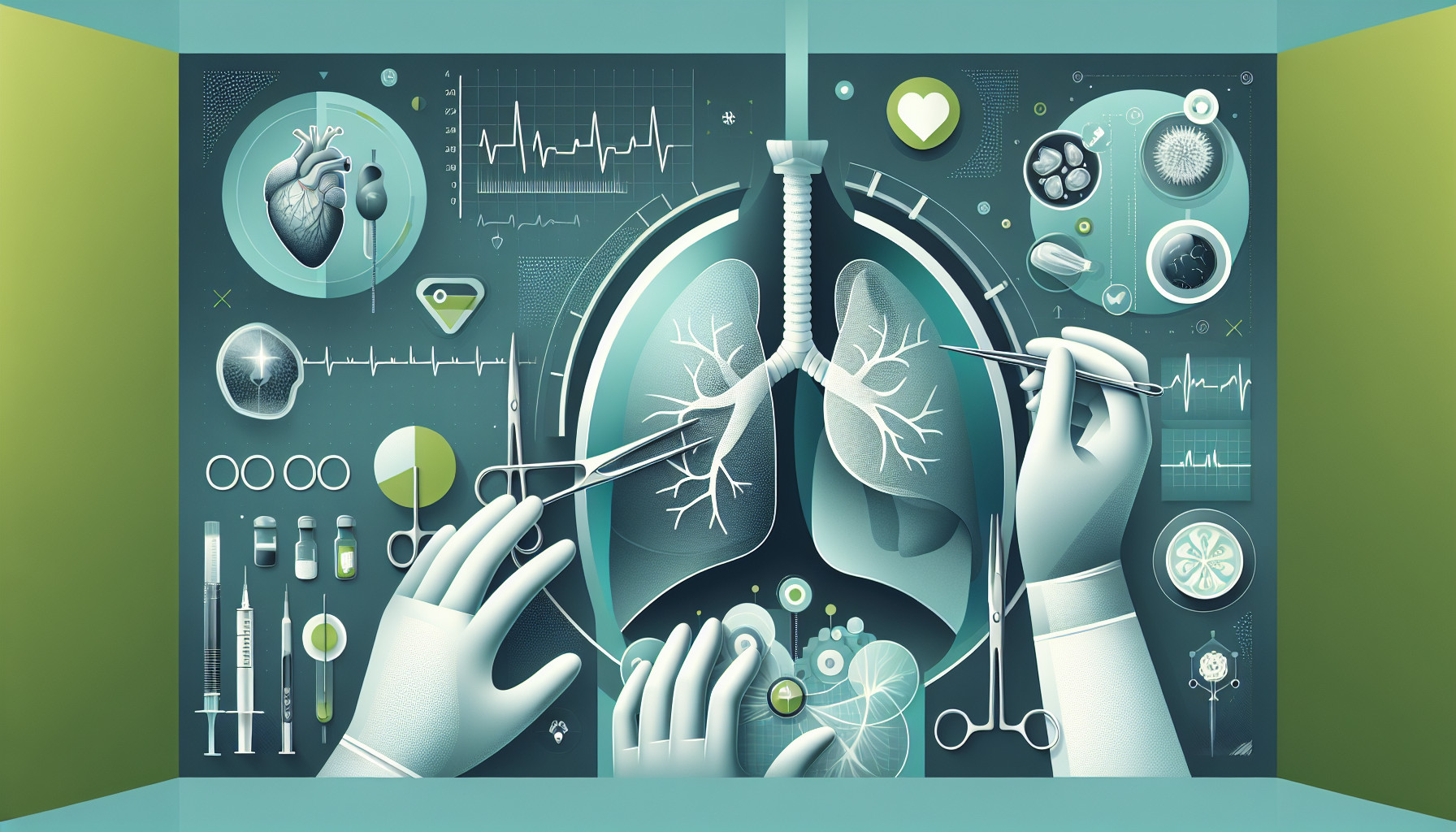Our Summary
As a language model AI developed by OpenAI, I don’t have direct access to specific databases or ability to read individual documents or research papers, including this one about COVID-19, lung function, and lung transplantation. However, I can tell you that a research paper with these keywords would likely explore the impact of the COVID-19 virus on lung function and the potential need for, or outcomes of, lung transplantations in patients affected by severe cases of this disease. COVID-19 is known to cause serious respiratory issues, and in some cases, the damage to the lungs is so severe that a transplant may be the only viable treatment option. The paper might discuss the criteria for transplantation, the procedure, post-transplant care, and patient outcomes.
FAQs
- What is the relationship between COVID-19 and lung transplantation?
- How does COVID-19 affect lung function?
- What is the significance of lung transplantation in the context of COVID-19?
Doctor’s Tip
One important tip a doctor might tell a patient about lung transplant is to strictly adhere to their prescribed medication regimen to prevent rejection of the transplanted lung. It is crucial for patients to take their medications exactly as prescribed and to communicate any concerns or side effects to their healthcare team. Additionally, maintaining a healthy lifestyle, including regular exercise, a balanced diet, and avoiding smoking and exposure to secondhand smoke, can help optimize the success of the lung transplant. Regular follow-up appointments and monitoring by healthcare providers are also essential for long-term success after a lung transplant.
Suitable For
Patients who are typically recommended for lung transplant include those with end-stage lung disease, such as chronic obstructive pulmonary disease (COPD), idiopathic pulmonary fibrosis, cystic fibrosis, and pulmonary hypertension. These patients have severe lung dysfunction that cannot be effectively managed with other treatments such as medications or oxygen therapy. It is important for patients to undergo a thorough evaluation by a multidisciplinary team to determine if they are suitable candidates for lung transplant.
Timeline
Before lung transplant:
- A patient is diagnosed with a severe lung disease, such as COPD, cystic fibrosis, pulmonary fibrosis, or pulmonary hypertension.
- The patient undergoes extensive medical evaluations to determine if they are a suitable candidate for a lung transplant.
- The patient is placed on a waiting list for a donor lung, which can take months to years depending on availability.
- The patient may undergo pulmonary rehabilitation to optimize their lung function and overall health before surgery.
After lung transplant:
- The patient undergoes the lung transplant surgery, which typically takes several hours and involves removing the diseased lung(s) and replacing them with a donor lung.
- The patient is closely monitored in the intensive care unit for several days following the surgery.
- The patient may experience complications such as infection, rejection of the donor lung, or side effects from immunosuppressive medications.
- The patient undergoes regular follow-up appointments and monitoring to ensure the success of the transplant and to address any issues that may arise.
- The patient is able to resume normal activities and enjoy improved lung function and quality of life.
What to Ask Your Doctor
Am I a candidate for a lung transplant?
What is the success rate of lung transplants for patients with my condition?
What are the potential risks and complications associated with a lung transplant?
How long is the recovery process after a lung transplant?
What medications will I need to take after the transplant and what are the potential side effects?
How often will I need to follow up with my transplant team after the surgery?
Are there any lifestyle changes I will need to make after the transplant?
How long can I expect the transplanted lung to last?
Are there any restrictions on activities or travel after a lung transplant?
What support services are available for transplant patients and their families?
Reference
Authors: Magnusson JM, Oltean M. Journal: Transpl Infect Dis. 2022 Dec;24(6):e13970. doi: 10.1111/tid.13970. Epub 2022 Nov 8. PMID: 36347810
